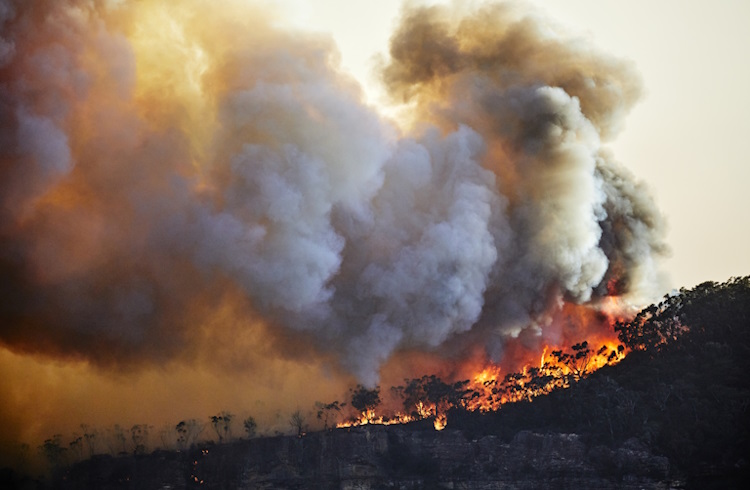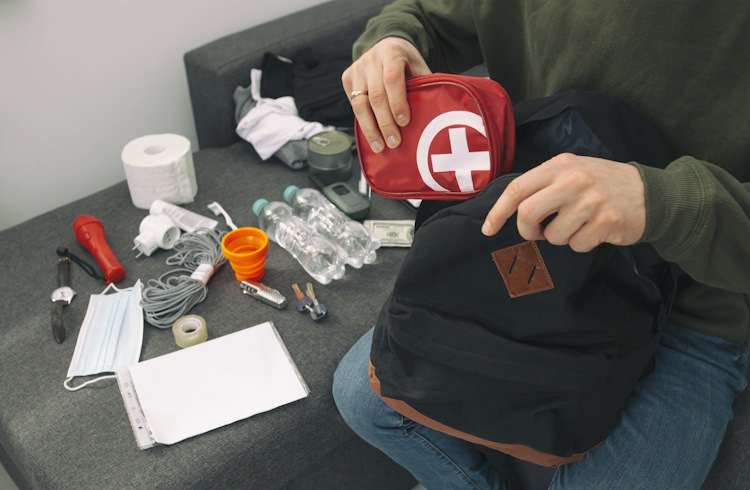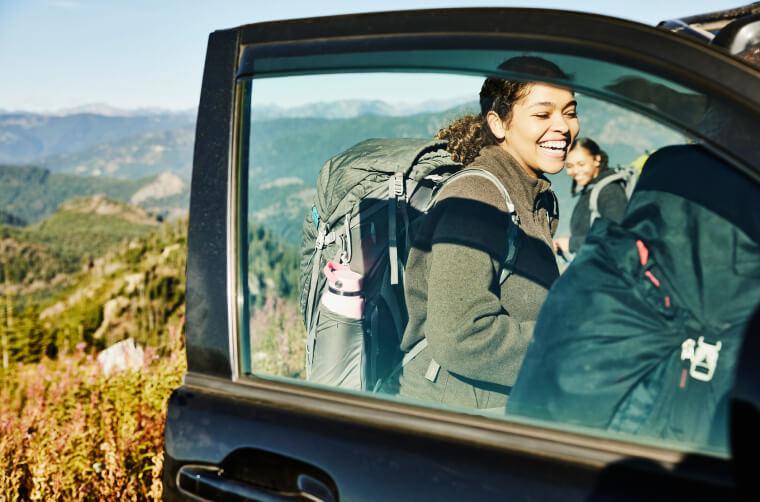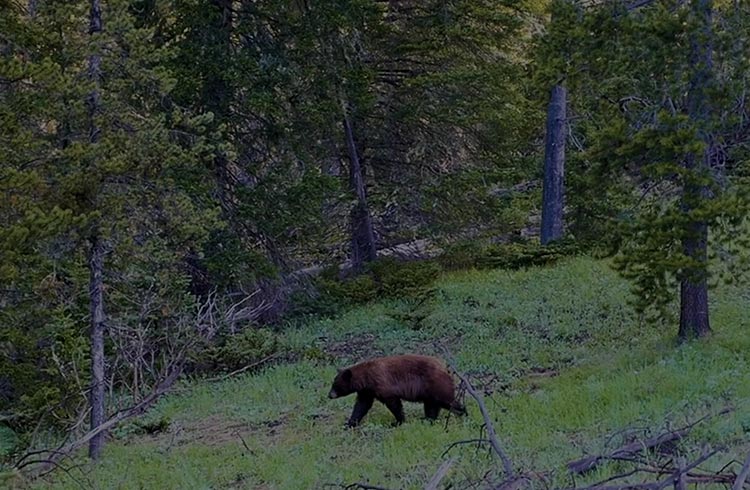What to Do During a Wildfire: Safety Tips for Travelers
Increased temperatures have caused more frequent and severe wildfires in destinations around the world. Here’s how you can prepare and stay fire-safe on your travels.
 Photo © Getty Images / Andrew Merry
Photo © Getty Images / Andrew Merry
Escaping to warmer weather is a tradition for many travelers. Whether camping in the mountains or heading to the beach, it used to be the most common worries were swatting mosquitoes or dealing with sunburn.
Recent years have brought a new and significant danger to summertime destinations as far-ranging as Turkey, Greece, Croatia, Italy, Spain, Portugal, Australia, Canada, and the United States. Precedent-setting wildfires have emerged as the newest threat to leisurely vacation days. Resulting in mass evacuations and the burning of millions of acres of wilderness and thousands of structures, they’ve ruined long-planned trips and sent tourists fleeing.
And these threats are no longer confined to summer or fall. In January 2025, a series of devastating wildfires burned more than 40,000 acres near Los Angeles, California, the result of dry conditions and high winds. More than 180,000 people were forced to evacuate.
While all of this might sound like motivation to pick a place known for rain, you don’t have to give up on sunny destinations. Whether you're planning a trip to a wildfire-prone area or find yourself in the midst of a bushfire event, these tips can help you stay safe and informed.
- Anticipating the threat of wildfires
- How to be fire-safe while traveling
- If you are evacuated due to wildfires
Anticipating the threat of wildfires
Fires have become increasingly common in many parts of the world due to global warming driven by climate change, leading to extreme heat and droughts that contribute to dry vegetation. Combined with factors like increased thunderstorms, or human activities such as smoking or campfires, these conditions have resulted in intensified wildfire activity.
To adapt to this new reality, the first step is to understand how your destination might be changing. "We know the Earth is heating up," says Jessica Harcombe Fleming, a PR professional with Tartanbond who assists destinations with emergency preparedness and crisis management. "And maybe traveling to Greece in the middle of August (for example) isn’t a good idea anymore."
Making these kinds of decisions has two parts. First, as visitors, we have an increased responsibility to pay attention to what’s going on. "Make sure you understand what August looks like in your destination – reach out and actually ask," she says. Secondly, destinations themselves need to be more honest. "They should say, ‘if you come in August, recognize that’s our wildfire season,’" and she suggests asking them to explain what that means. "Even if the area you’re going isn’t affected, maybe government plans include taking over hotels for evacuees from other areas."
As your trip approaches, Harcombe Fleming suggests staying informed – not just on a national level, but right down to the town. "People cancelled trips to Hawaii during the August 2023 wildfires. But if you looked closer, it wasn't the entire state of Hawaii. It was one portion of one island."
She points to Destination British Columbia’s Know Before You Go information page as a great example of the kind of resource travelers should be demanding from destinations. With important updates and step-by-step advice, it demystifies a variety of potential emergencies.
How to be fire-safe while traveling
Staying updated on wildfire conditions can be challenging, especially if you're unfamiliar with the geography or language, or if your hosts are too reassuring. However, it's important to monitor local news, official emergency sources, or use locally supported apps like Alertable, WatchDuty, the Readi App, or the FEMA app to stay informed.
While you travel, be fire-safe by respecting fire bans, properly disposing of smoking supplies and reporting any signs of fire you see.
If there are fires in your region, get prepared. But don’t panic – life often goes on as normal during fire season, with a few exceptions:
- Check air quality: Wildfires can create hazardous air, so keep an eye on the Air Quality Index and take precautions if it gets bad, especially if you have respiratory issues or are active in the outdoors.
- Put together an emergency supply kit: Pack a flashlight, first-aid kit, medications, masks, and food and water – just in case you’re evacuated or stranded by road closures. Have a backup power source or portable charger for your devices. If you are driving your own vehicle, keep the gas tank filled or battery charged.
- Have an evacuation plan: Learn the evacuation routes or procedures for bus or boat evacuations. Have a designated meeting point for your group in case you get separated. This is also a good time to buy a paper map and download offline maps for your phone. Some evacuation routes may take you out of cellular range.
- Stay flexible with your plans: Wildfires can disrupt one region while leaving an adjacent one perfect for visitors. Be prepared to change your itinerary at short notice if conditions worsen.

If you are evacuated due to wildfires
You may receive an evacuation alert before an evacuation order is issued. But when the order comes, it’s crucial to take immediate action. Before leaving, dress in pants, a long-sleeve shirt, and your heaviest closed-toe shoes to protect against heat and flying embers.
- Follow instructions: Depart as soon as possible – conditions can change rapidly and traffic may get heavier if you wait. If you’re being evacuated by buses or boats, bring your emergency supply kit (and permitted luggage). If you’re driving, load up with supplies, double-check the designated route, and inform others of your plans.
- Be cautious: Stay alert for downed power lines, road closures, and other hazards while driving. Keep your car windows closed and headlights on. Tune into the local radio station (or apps) for updates.
- Don’t stray or speed: Stay calm and drive at a steady, safe speed (emergency personnel won’t want to stop their duties to pull you from a ditch). Stick to the evacuation route and don’t be tempted by potential short cuts. Deviating can lead to unknown hazards and delays in reaching safety.
Once you reach safety, inform others, and, if necessary, contact your insurance or travel company. If you require additional support, head to a designated evacuee reception center. These centers provide food, clothing and shelter; assistance with finding or reuniting with family or friends; and other services.
While going through a fire is nobody’s idea of a good trip, by staying informed, prepared, and flexible, you can safely navigate wildfires while traveling. And don’t let the risk of fires deter you from visiting a destination – especially one that’s already experienced a disaster. These places need visitors as they recover and will be eager to welcome you.


No Comments